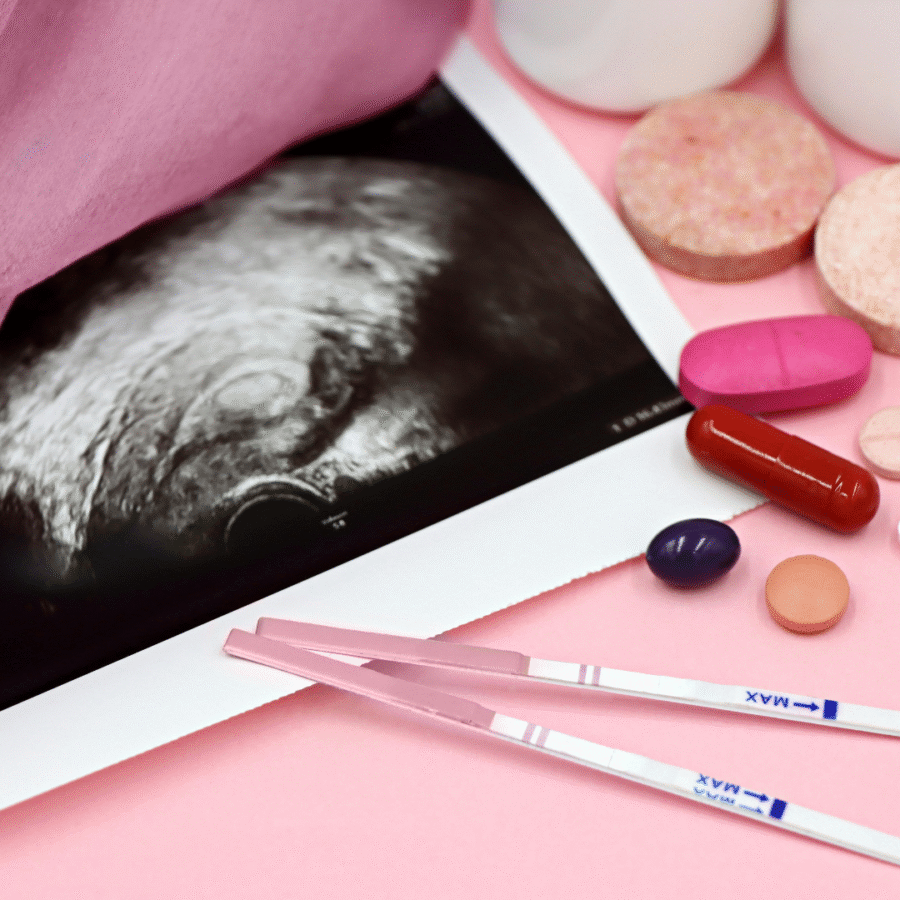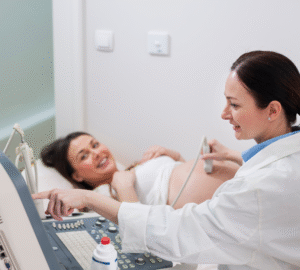By Dr. Divya Venugopalan – Consultant Obstetrician & Gynaecologist, Karthika Woman and Childcare
Menstruation is a vital part of a woman’s reproductive health, yet many women suffer silently with uncomfortable or even debilitating symptoms. At Karthika Woman and Childcare, we frequently address concerns related to female menses problems, ranging from painful periods to irregular periods issues. Understanding the underlying causes is the first step toward effective management and long-term relief.
This comprehensive guide will delve into the most common menstrual disorders, explore their root causes, and provide insights into when and why to seek medical help.
What Is a Menstrual Disorder?
A menstrual disorder is any abnormality in a woman’s monthly cycle that disrupts her physical, hormonal, or emotional well-being. These can include problems with timing, flow, duration, or associated symptoms of menstruation.
When we speak about a female menses problem, we are not only referring to discomfort but potentially significant health conditions that can impact fertility, hormonal balance, and overall quality of life.

Most Common Menstrual Disorders
1. Amenorrhea (Absence of Periods)
Amenorrhea refers to the absence of menstrual bleeding.
- Primary Amenorrhea: When a girl doesn’t start menstruating by the age of 15.
- Secondary Amenorrhea: When periods stop for three months or more after being previously regular.
Possible Causes:
- Polycystic Ovary Syndrome (PCOS)
- Thyroid disorders
- Extreme weight loss or obesity
- Intense physical activity
- Pituitary gland disorders
Amenorrhea can be an early sign of serious hormonal imbalances or reproductive issues and is a key female menses problem we address at Karthika Woman and Childcare.
2. Dysmenorrhea (Painful Periods)
Dysmenorrhea is characterized by severe cramps and pain during menstruation.
- Primary dysmenorrhea: Caused by natural prostaglandin production.
- Secondary dysmenorrhea: Results from other conditions like endometriosis or fibroids.
Symptoms:
- Pelvic pain
- Nausea
- Backache
- Vomiting
Common Causes:
- Endometriosis
- Pelvic inflammatory disease (PID)
- Fibroids
- Adenomyosis
For many women, dysmenorrhea can be disabling, yet with timely intervention, this female menses problem can be managed effectively.
3. Menorrhagia (Heavy Menstrual Bleeding)
Menorrhagia involves abnormally heavy or prolonged menstrual bleeding, often leading to fatigue and anemia.
Symptoms:
- Changing sanitary pads every hour
- Menstrual periods lasting more than 7 days
- Large blood clots
Causes:
- Hormonal imbalance
- Uterine fibroids or polyps
- Endometrial hyperplasia
- Bleeding disorders
- Use of anticoagulants
Heavy periods are not just inconvenient—they can be a red flag for serious underlying issues that need expert evaluation.
4. Oligomenorrhea (Infrequent Periods)
Oligomenorrhea refers to infrequent menstrual periods, typically occurring more than 35 days apart.
Causes:
- PCOS
- Thyroid dysfunction
- Excessive exercise
- Low body weight
- Stress
Often associated with irregular periods issues, oligomenorrhea can also affect fertility and is usually a symptom of deeper hormonal imbalances.
5. Polycystic Ovary Syndrome (PCOS)
PCOS is one of the leading causes of female menses problems. It is a hormonal disorder that affects ovulation and menstruation.
Symptoms:
- Irregular or missed periods
- Excess facial or body hair
- Acne or oily skin
- Weight gain
- Infertility
PCOS is not just a reproductive issue—it’s also a metabolic disorder with long-term health implications. Women with PCOS often suffer from irregular periods issues, which can be improved with timely treatment and lifestyle changes.
6. Premenstrual Syndrome (PMS)
PMS refers to a set of physical and emotional symptoms that occur in the second half of the menstrual cycle
Symptoms:
- Mood swings
- Fatigue
- Bloating
- Breast tenderness
- Irritability
Although common, severe PMS can affect relationships and daily functioning. In some cases, it may develop into Premenstrual Dysphoric Disorder (PMDD), a more intense form that requires medical intervention.
Causes of Female Menses Problems
1. Hormonal Imbalances
Hormones such as estrogen, progesterone, and LH/FSH must be in harmony for a healthy menstrual cycle. Disruptions in this balance are the most common root of female menses problems and irregular periods issues.
2. Thyroid Disorders
Both hypothyroidism and hyperthyroidism can cause changes in menstrual regularity, flow, and duration.
3. Stress and Lifestyle
Mental stress, poor nutrition, and inadequate sleep are often overlooked but contribute significantly to female menses problems. Chronic stress can disrupt the hypothalamus, which controls the menstrual cycle
4. Weight Extremes
Being underweight or overweight can affect hormone levels. Fat cells produce estrogen, and an imbalance can lead to missed periods or heavy bleeding.
5. Uterine or Ovarian Conditions
- Fibroids
- Endometriosis
- Ovarian cysts
- Adenomyosis
These conditions can directly impact menstrual health and often cause heavy bleeding, pain, or irregular periods issues.
6. Medications and Birth Control
Certain medications, especially hormonal contraceptives, can lead to changes in menstrual patterns. While sometimes therapeutic, they can also be the source of menstrual irregularities if not monitored properly.
When to Seek Medical Help
Many women delay treatment for female menses problems, assuming irregularities are normal. However, you should see a gynecologist if:
- Your periods are excessively painful or heavy
- You skip periods without pregnancy
- You have spotting between periods
- Menstrual cycles are shorter than 21 days or longer than 35
- You’re trying to conceive with irregular periods issues
Early diagnosis helps prevent complications such as anemia, infertility, or endometrial problems. At Karthika Woman and Childcare, our holistic approach ensures both symptom relief and long-term wellness.
Diagnosis and Testing
At Karthika Woman and Childcare, diagnosis begins with a thorough medical history and physical examination. Depending on your symptoms, we may recommend:
- Ultrasound: To detect fibroids, ovarian cysts, or PCOS
- Hormonal blood tests: Checking levels of estrogen, progesterone, thyroid hormones, and prolactin
- Endometrial biopsy: If abnormal bleeding is present
Pelvic exam: To detect structural abnormalities
Treatment Options
Treatment for menstrual disorders depends on the underlying cause. Common approaches include:
1. Lifestyle Modifications
- Balanced diet
- Regular exercise
- Stress management techniques
- Weight regulation
2. Medications
- Hormonal birth control (pills, patches, IUDs)
- Pain relievers like NSAIDs
- Hormone therapy
Metformin for PCOS
3. Surgical Options
- Hysteroscopy for polyps or fibroids
- Laparoscopy for endometriosis
- Endometrial ablation (in cases of persistent menorrhagia)
4. Fertility Treatment
If irregular periods issues are impacting conception, ovulation induction and assisted reproductive technologies (ART) may be considered.
Preventing Menstrual Health Issues
Although some conditions are not entirely preventable, you can reduce the risk of developing severe female menses problems by:
- Tracking your menstrual cycle regularly
- Getting annual gynecological checkups
- Managing stress through yoga or mindfulness
- Avoiding fad diets and ensuring proper nutrition
- Staying physically active
Final Thoughts from Dr. Divya Venugopalan
At Karthika Woman and Childcare, we believe that female menses problems are not just inconveniences—they are messages from your body that something may be out of balance. No woman should have to suffer in silence with painful, irregular, or distressing menstrual experiences.
If you are experiencing irregular periods issues or any menstrual concerns, our team is here to support you with personalized care, advanced diagnostics, and compassionate understanding.
Your menstrual health is a vital part of your overall wellness—don’t hesitate to seek help.
Book Your Appointment Today
Karthika Woman and Childcare
🏥 Advanced Care for Women, by Women
👩⚕️ Dr. Divya Venugopalan
Consultant Obstetrician & Gynaecologist
MBBS, MD (OBG), DNB, FICOG
📍 Address:
- Thanisandra Bengaluru
- HRBR layout Bengaluru
- Sahakaranagar Bengaluru
📞 Phone: +919972199728
📧 Email:info@karthikawomanandchildcare.in
🌐 Website: www.karthikawomanandchildcare.in



